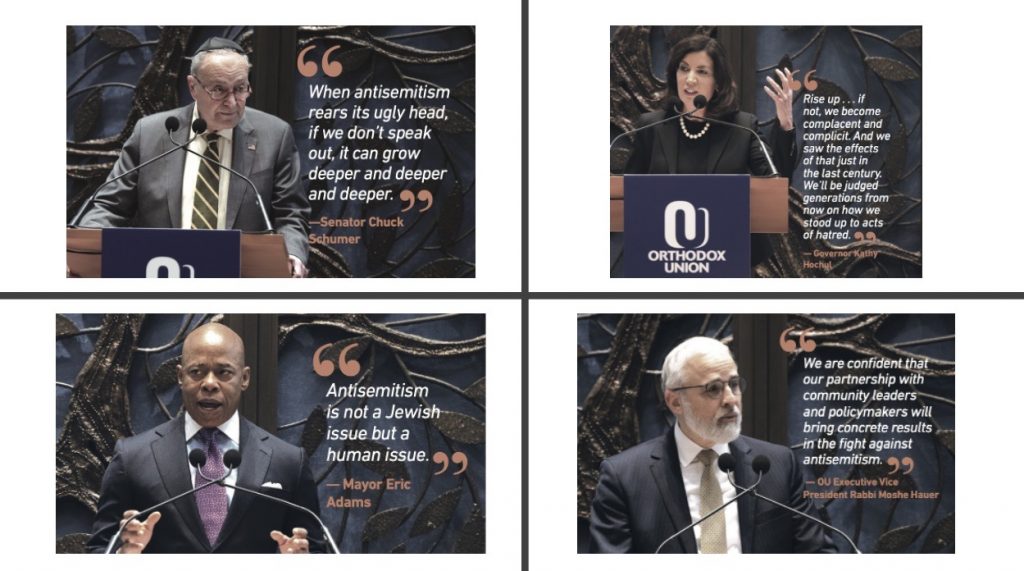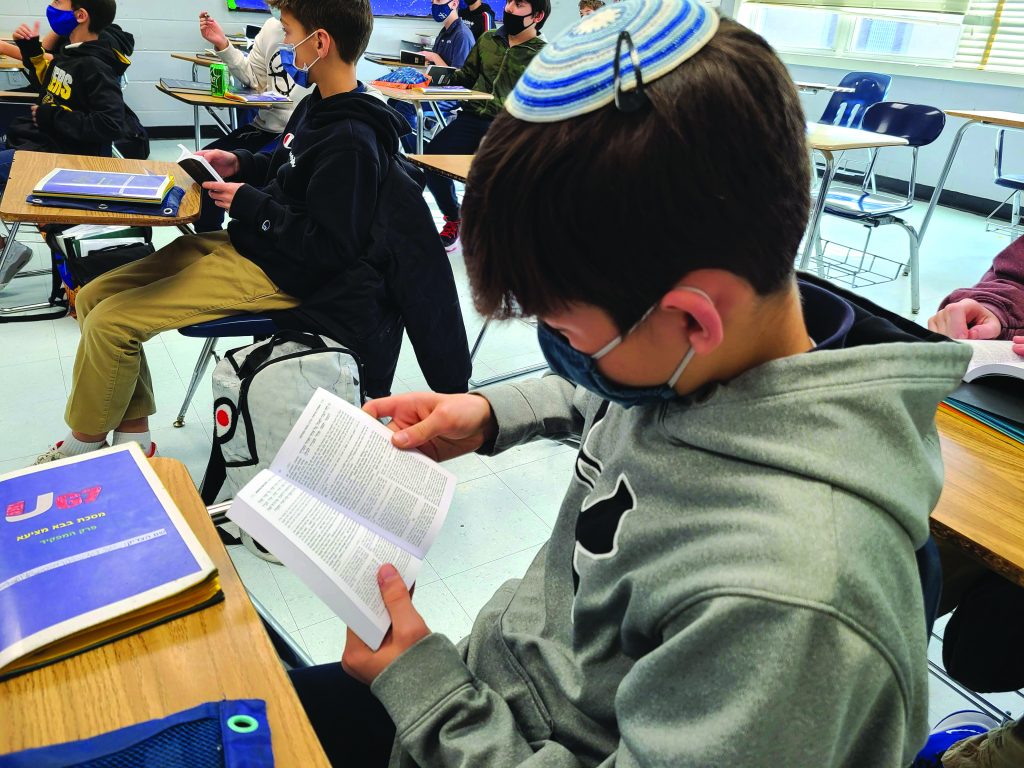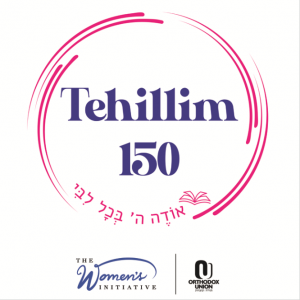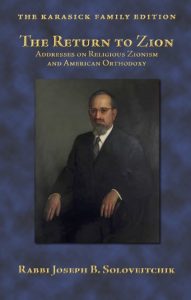Inside the OU – Spring 2023
Happenings Around the OU
ADDRESSING ANTISEMITISM
In the face of rising antisemitism across the US, in December the OU convened an urgent meeting with federal and local elected officials. The event, held at Lincoln Square Synagogue on New York’s Upper West Side, featured Homeland Security Secretary Alejandro N. Mayorkas, US Senator Chuck Schumer, New York Governor Kathy Hochul, and New York City Mayor Eric Adams. These prominent speakers addressed leaders of the Orthodox Jewish community’s synagogues and schools, whose members face the threat of increased antisemitism every day.
According to the Anti-Defamation League, there were 2,717 antisemitic acts nationwide in 2021, a 34 percent increase from the previous year. In New York alone, the NYPD recorded that hate crimes more than doubled from 2021 to 2022, with forty-five antisemitic incidents recorded in November 2022 alone.
At the summit, Governor Hochul announced a new Hate and Bias Prevention Task Force, a part of the state’s Department of Human Rights, which will operate in all New York counties as both an educational tool and an early-warning and prevention system. Secretary Mayorkas referenced current Department of Homeland Security initiatives to prevent hate crimes, including an antiterrorism branch, a faith council, increased cybersecurity training, and President Biden’s announcement of an interagency group to coordinate a national strategy to counter antisemitism.
“While we have accomplished a lot in past years to increase security funding for our communities, the rising threat of antisemitism demands more resources and more action. We will not rest until all our communities are adequately protected and safe,” said OU Executive Director of Public Policy Nathan Diament.
BRINGING MISHNAH YOMI TO THE NEXT GENERATION
With the start of Seder Moed in the Mishnah Yomi cycle, in December about 1,500 junior high school students from twelve schools nationwide joined OU Torah Initiative’s new All Mishnah Jr. program. Led by student ambassadors in grades six through eight, participants committed to learning two mishnayot a day to complete all twenty-four chapters of Masechtot Shabbat and Megillah in only a few months, with opportunities to win swag and prizes at different milestones. Provided with a complimentary ArtScroll Mesorah Publications Mishnayot, students completed their daily learning in chavrutot or learning groups or by listening to shiurim on the All Mishnah app.
“We’ve been inspired by the consistent initiative of these junior high students to incorporate daily elective Torah learning into their already packed school day,” noted OU Torah Initiatives Executive Director Rabbi Moshe Brandsdorfer.
Learn more at allmishnahjr.com.
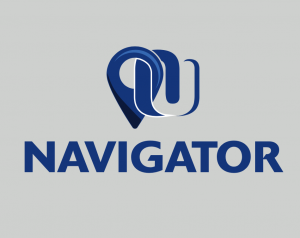 I’m on vacation and the mikvah here seems to be closed. Who can help me? Where can I find helpful tips to budget properly for my growing Jewish family?
I’m on vacation and the mikvah here seems to be closed. Who can help me? Where can I find helpful tips to budget properly for my growing Jewish family?
Have a personal or communal need? Not sure where to start or what resources are available? Meet the Navigator, the Jewish help desk for non-emergency situations created by the OU’s Community Projects and Partnerships. The Navigator utilizes a network of thousands of OU partners worldwide—shuls, non-profit organizations, businesses and community leaders—as well as a professional staff involved in all areas of Jewish life to bring you the best answer.
Submit your questions today via email or WhatsApp at ou.org/navigator.
IVDU OFFERS LANDMARK DRIVER’S ED COURSE
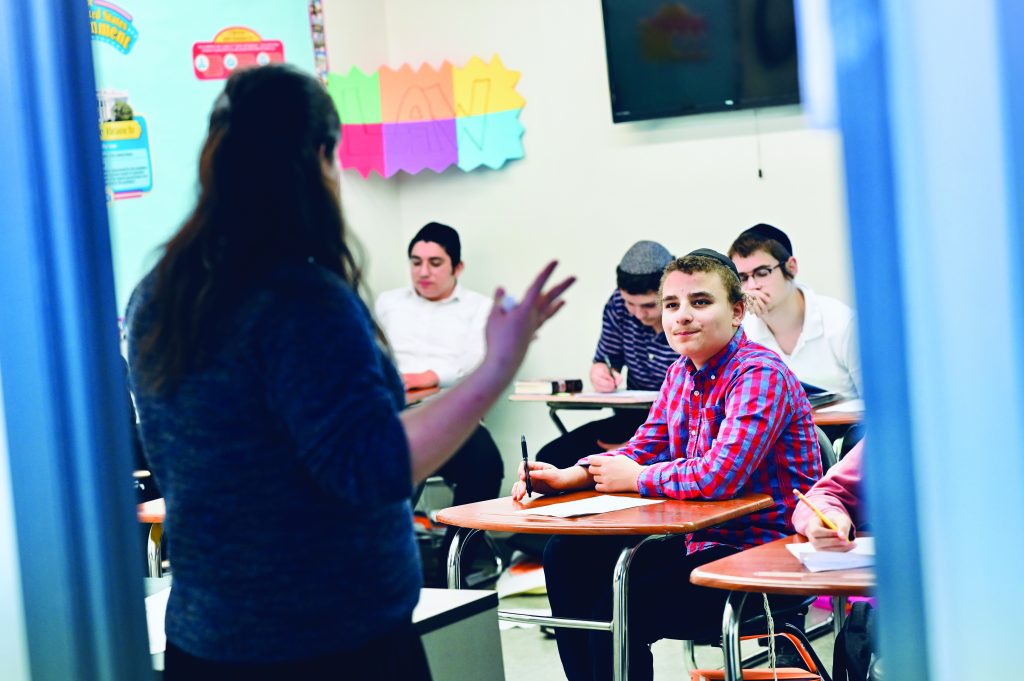
The IVDU driver’s ed pilot program is taught by the same instructor who oversees the program in mainstream Brooklyn schools. The students will emerge from the course, like their mainstream peers, with the same skills needed to be responsible drivers.
In November, the Marilyn and Sheldon David IVDU Boys Upper School in Brooklyn became the first special education school in New York to offer eligible students a DMV-approved driver’s education course. The twelve boys enrolled in the pilot class are learning the standardized Empire State driver’s curriculum, slightly modified to accommodate participants’ unique learning styles.
“Any student who can, should be able to get a driver’s license,” Rabbi Michoel Druin, IVDU Head of School, said. “I’m proud that we can offer our students such a critical life skill as they prepare to launch into adulthood.”
IVDU, a network of schools for those with mild-to-moderate learning, social and developmental delays, operates under the aegis of Yachad, the OU division for individuals with disabilities in the Jewish community.
BUILDING COMMUNAL BRIDGES
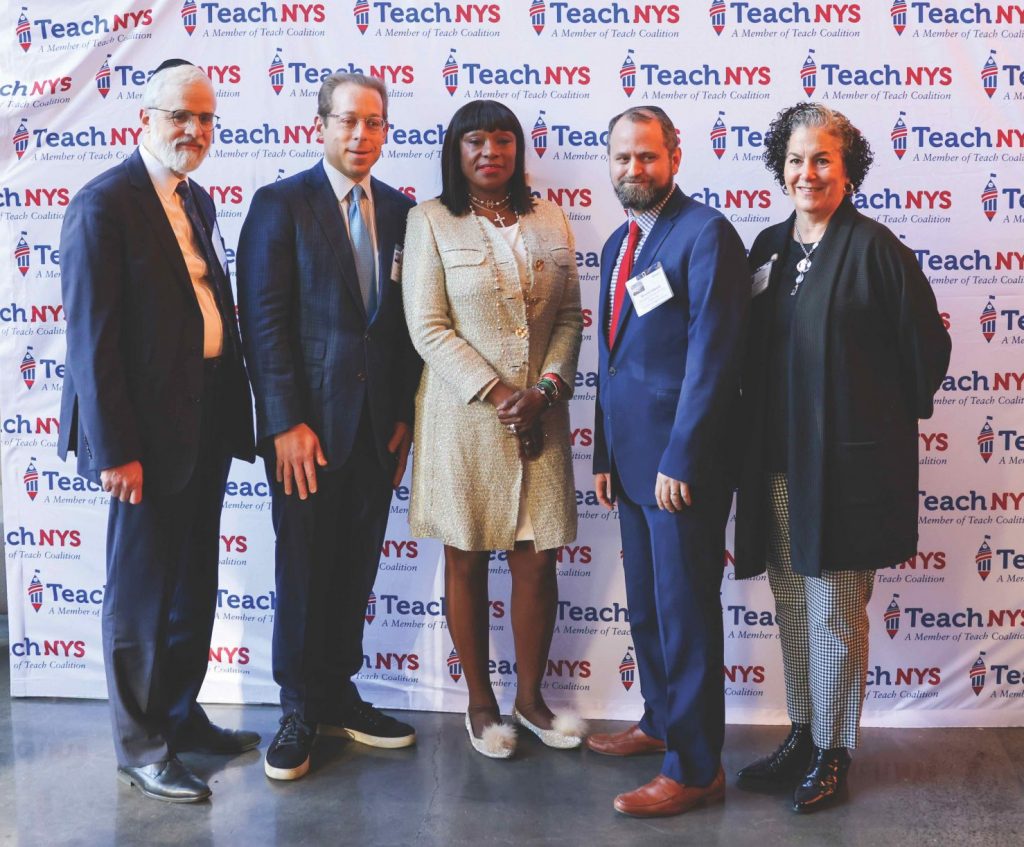
From left: OU Executive Vice President Rabbi Moshe Hauer; Teach NYS Co-Chair Cal Nathan; Chief Advisor to New York Mayor Eric Adams, Ingrid Lewis-Martin; OU Managing Director and Founder of Teach Coalition Maury Litwack; and New York State Assembly Member Stacey Pheffer Amato at the Building Bridges event. Photo: Rita Thompson
In December, Teach NYS, in collaboration with City & State New York, hosted “Building Bridges,” a discussion of top issues for New York’s diverse interfaith community. Held at The Mezzanine in Manhattan’s Financial District, the event featured a variety of notable speakers from the Catholic, Islamic and Jewish communities—including OU Executive Vice President Rabbi Moshe Hauer and OU Managing Director Maury Litwack. Panel discussions explored topics including protecting houses of worship from hate crimes and state-sponsored funding for faith-based schools.
Teach Coalition, a project of the OU, works to make nonpublic schools better, safer and more affordable through advocacy and grassroots activism on behalf of approximately 90 percent of yeshivah and day school students nationwide.
HIGHLIGHTS OF THE BIENNIAL CONVENTION
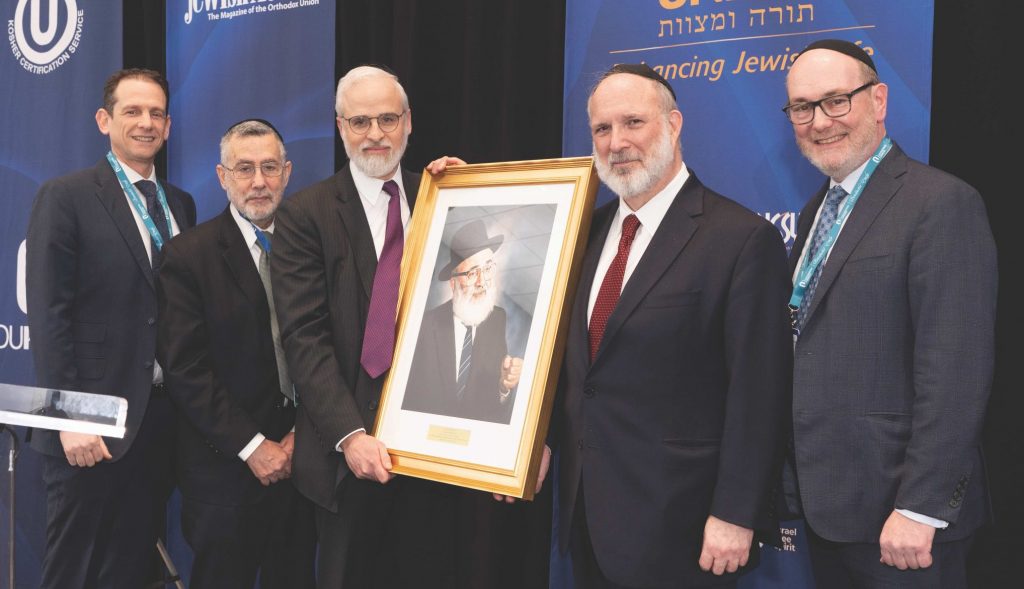
OU leadership present OU President, Emeritus Mark (Moishe) Bane with an artistic rendering of Mr. Bane’s primary rebbe, Rav Yaakov Weinberg, at the convention in January. The inscription reads “V’hayu einecha ro’ot et morecha—your guiding leadership has faithfully reflected the vision of your rebbeim.” From left: OU Executive Vice President/Chief Operating Officer Rabbi Dr. Josh Joseph; OU Kosher CEO Rabbi Menachem Genack; OU Executive Vice President Rabbi Moshe Hauer; Mr. Bane; and OU President Mitchel R. Aeder. Photo: Ulrich Studios
This past January, OU lay leadership as well as delegates from NCSY and OU synagogues convened at the Young Israel of Woodmere in New York for the OU’s Biennial Convention and Meeting. In addition to electing Mitchel R. Aeder as the next OU President, fourteen new members were elected to the OU Board—including two women National Vice Presidents—representing communities around the country. At the convention, chaired by Elliott Mandelbaum, participants approved proposed resolutions and policies and heard from OU leadership about their vision for the future of the organization. Speakers were OU President, Emeritus Mark (Moishe) Bane, OU President Mitchel R. Aeder, OU Executive Vice President Rabbi Moshe Hauer and keynote speaker Rav Yosef Zvi Rimon.
To see the complete OU Board listing, visit ou.org/ou-lay-leadership-national-officers/.
Aiming for a better knowledge of Tehillim among teenagers, the OU Women’s Initiative launched “Tehillim 150,” a 150-day journey through Tehillim for high school girls in February. The program, running in tandem with the Torat Imecha Nach Yomi cycle, is led by student ambassadors at over forty schools nationally, with more than 850 students learning together daily. Participants have access to a daily podcast by Yael Davidowitz focusing on relevant take-home messages. The podcast was dedicated by Miriam and Alan Greenspan in memory of Miriam’s mother, Shifra Friedman, a”h. In addition, each participating student received a copy of the ArtScroll pocket Tehillim, dedicated in honor of Mrs. Nechama Wolfson by her children, grandchildren and great grandchildren.
Promotions and Achievements
Welcome to…
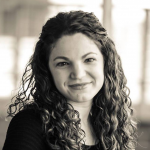 . . . Tamar Frydman, Director of the Impact Accelerator. Tamar joins the OU with over fifteen years of experience in driving organizational strategy and pioneering new programs in the nonprofit world. She most recently served as Senior Director of Programs at the Jewish Funders Network, and prior to that held management positions at UJA-Federation of New York. Tamar holds a bachelor’s in psychology from Towson University and an MSW from the University of Maryland School of Social Work.
. . . Tamar Frydman, Director of the Impact Accelerator. Tamar joins the OU with over fifteen years of experience in driving organizational strategy and pioneering new programs in the nonprofit world. She most recently served as Senior Director of Programs at the Jewish Funders Network, and prior to that held management positions at UJA-Federation of New York. Tamar holds a bachelor’s in psychology from Towson University and an MSW from the University of Maryland School of Social Work.
 . . . Davida Fried, Field Director of Westchester County and Manhattan, Teach Coalition. In this role, Davida is responsible for engaging Jewish parents and community members to vote and take action on behalf of Jewish students, families and schools. Davida previously worked as the Early Childhood Director for Stein Yeshiva in New York, as well as the Preschool Director for Camp Regesh in New Jersey. She holds a bachelor’s in education from Yeshiva University’s Stern College for Women and a master’s in education and administration from YU’s Azrieli Graduate School of Jewish Education and Administration.
. . . Davida Fried, Field Director of Westchester County and Manhattan, Teach Coalition. In this role, Davida is responsible for engaging Jewish parents and community members to vote and take action on behalf of Jewish students, families and schools. Davida previously worked as the Early Childhood Director for Stein Yeshiva in New York, as well as the Preschool Director for Camp Regesh in New Jersey. She holds a bachelor’s in education from Yeshiva University’s Stern College for Women and a master’s in education and administration from YU’s Azrieli Graduate School of Jewish Education and Administration.
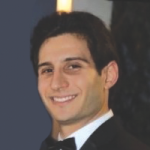 . . . Rabbi Shmuli Zema, Senior Director of Development, OU-JLIC. Rabbi Zema served as Assistant Rabbi of The Hampton Synagogue for four years, Rabbinical Educator at Manhattan Jewish Experience, and most recently as Executive Director of Friends of JCT (Machon Lev), a role that combined development, strategy and management. He holds a bachelor’s in psychology from Touro’s Lander College, an MBA in finance and operations research from the Zicklin School of Business (Baruch College), and semichah from Yeshiva University.
. . . Rabbi Shmuli Zema, Senior Director of Development, OU-JLIC. Rabbi Zema served as Assistant Rabbi of The Hampton Synagogue for four years, Rabbinical Educator at Manhattan Jewish Experience, and most recently as Executive Director of Friends of JCT (Machon Lev), a role that combined development, strategy and management. He holds a bachelor’s in psychology from Touro’s Lander College, an MBA in finance and operations research from the Zicklin School of Business (Baruch College), and semichah from Yeshiva University.
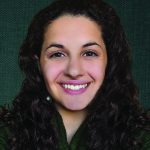 . . . Malki Agular, Social Media Manager, OU Marketing and Communications. In this role, Malki will provide training in social media best-practices and oversee the main OU social accounts. She joins the OU with over three years of experience in social media management, most recently as the Social Media Manager and Graphic Designer at an advertising and marketing agency. Malki holds a degree in digital multimedia design from Touro College.
. . . Malki Agular, Social Media Manager, OU Marketing and Communications. In this role, Malki will provide training in social media best-practices and oversee the main OU social accounts. She joins the OU with over three years of experience in social media management, most recently as the Social Media Manager and Graphic Designer at an advertising and marketing agency. Malki holds a degree in digital multimedia design from Touro College.
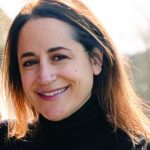 . . . Atara Neuer, National Director of Marketing, OU-JLIC. In her new position, Atara will employ strategic marketing to build OU-JLIC’s brand awareness, mission and values. At her most recent position as West Side Director of Manhattan Jewish Experience, Atara worked in event management and program development for young Jewish professionals, as well as marketing and community engagement. She holds a bachelor’s from McGill University.
. . . Atara Neuer, National Director of Marketing, OU-JLIC. In her new position, Atara will employ strategic marketing to build OU-JLIC’s brand awareness, mission and values. At her most recent position as West Side Director of Manhattan Jewish Experience, Atara worked in event management and program development for young Jewish professionals, as well as marketing and community engagement. She holds a bachelor’s from McGill University.
Congratulations to…
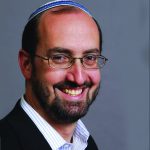 . . . Rabbi Ilan Haber on his promotion to OU Chief Strategy Officer. This organization-wide role focuses on change management, evaluation, planning and alignment, as well as encompassing internal organizational and programmatic assessment. Rabbi Haber brings nearly twenty years of experience at the OU, including eighteen-plus years at the helm of OU-JLIC. His keen strategic expertise positions him well to guide the organization forward as a key manager in the implementation of the OU’s strategic vision. While no longer responsible for day-to-day management of OU-JLIC, Rabbi Haber will retain the title of International Director of OU-JLIC, and will continue to play a key role in its growth and development.
. . . Rabbi Ilan Haber on his promotion to OU Chief Strategy Officer. This organization-wide role focuses on change management, evaluation, planning and alignment, as well as encompassing internal organizational and programmatic assessment. Rabbi Haber brings nearly twenty years of experience at the OU, including eighteen-plus years at the helm of OU-JLIC. His keen strategic expertise positions him well to guide the organization forward as a key manager in the implementation of the OU’s strategic vision. While no longer responsible for day-to-day management of OU-JLIC, Rabbi Haber will retain the title of International Director of OU-JLIC, and will continue to play a key role in its growth and development.
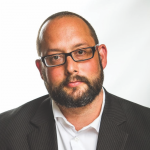 . . . Rabbi Josh Ross on the expansion of his leadership role as the Acting Executive Director, OU-JLIC. Rabbi Ross will bear primary responsibility for OU-JLIC’s day to day management. He has served as Deputy Director of OU-JLIC for the past thirteen years. Rabbi Ross began his career with OU-JLIC, after many years in Israel, as a Campus Educator at Cornell and then Campus Director at Princeton.
. . . Rabbi Josh Ross on the expansion of his leadership role as the Acting Executive Director, OU-JLIC. Rabbi Ross will bear primary responsibility for OU-JLIC’s day to day management. He has served as Deputy Director of OU-JLIC for the past thirteen years. Rabbi Ross began his career with OU-JLIC, after many years in Israel, as a Campus Educator at Cornell and then Campus Director at Princeton.
Coming Soon from OU Press
The Return to Zion: Addresses on Religious Zionism and American Orthodoxy—The Karasick Family Edition
This volume consists of ten addresses delivered between 1939 and 1958 by Rabbi Joseph B. Soloveitchik, known as “the Rav,” at gatherings convened by the Mizrachi Organization of America and/or Hapoel Hamizrachi of America. In addition, the volume concludes with an epilogue from 1967 containing the Rav’s reflections on the Six-Day War. An introduction by the translator gives the historical context for the addresses.
The English publication of these discourses, which were published in the original Yiddish by OU Press in 2021, adds a significant new dimension to our understanding of the Rav and his worldview as it relates to some of the most critical events of the twentieth century. In these discourses, Rav Soloveitchik confronts the great historical events of his time: the destruction of European Jewry, the difficulties and prospects of building a center for Orthodox Judaism in America, and the renewal of Jewish life and sovereignty in the Land of Israel.
This volume allows us a glimpse into history from the perspective of one of the great Jewish thinkers of the time. To give one example, in this excerpt from an address given in 1944, while the Holocaust was still taking place, Rav Soloveitchik chose to focus not on the destruction but on the road to rebuilding, and in particular on the role of Orthodox Jewry in that process:
We must not fool ourselves; we should not expect any sort of sudden salvation or comfort to come from the nations of the world even after there is peace, once Hitler, may his name be blotted out, and his gang of villains are in Gehenna. We know well the two-faced politics of English governments; our friends in Washington, too, have little understanding of Zionism and of the idea of a Jewish state in the Land of Israel. I do not speak here in despairing, pessimistic spirits, Heaven forbid . . . I know that the Master of the Universe will fulfill His covenant, and His prophecies have more power than the [1939 British] White Paper. Still, we must be realistic and not adopt foolish, fantastical hopes. “The honor will eventually come” (Nedarim 62a), but the road to redemption will be long and difficult . . .
The ideology of building the land can only be based upon the ideology of the land’s holiness. A Jew who believes in the land’s holiness knows, too, the halakhah that the second sanctification of the land in the days of Ezra was in effect “in its own time and for all time” (Maimonides, Hilkhot Terumot 1:5), and so he cannot despair, for “You, O L-rd, are enthroned forever, Your throne endures through the ages.” Even if many White Papers, filled with antisemitism, seek to shatter the divine throne, they will not prevail. “Hatch a plot—it shall be foiled; agree on action—it shall not succeed. For with us is G-d!” (Isa. 8:10) . . . But the holiness of the land is not a concept that can be abstracted from the full complex of Jewish ideas of sanctity. The holiness of the land is a correlative of the holiness of Israel, the Torah, and the Holy One, Blessed is He.
Rav Soloveitchik concluded this address with his vision of the work that lay ahead:
In a word: we have to prepare new parchment to receive the letters from the burned Torah scrolls, letters which are already now knocking at our door. This cannot be accomplished at a conference via declarations and resolutions; rather, this is a long process involving difficult labor and organized efforts, day in and day out. There is no royal road to Judaism, just as, to quote Euclid, “There is no royal road to geometry.” It is a difficult path, a long journey, but one that is ultimately short (see Eiruvin 53b). Yisrael Sava [Israel of Old] must be saved and must exist not in ghettos but in a vast, free land. Orthodoxy’s task is to rescue the letters of the Torah scrolls that are now being incinerated together with the Rabbi Chanina ben Teradions.
Invoking the prophet Amos (7:14), Rabbi Soloveitchik describes himself as “a cattle breeder and a tender of sycamore figs—not a party chairman, not even a rabbinic leader. Still, sometimes a cattle breeder and a tender of sycamore figs from the rocky Judean hills can see somewhat further and more clearly than the elegant aesthetes of royal Bethel.” This volume is a fascinating window onto a period of catastrophe and rebuilding, as seen through the lens of a visionary observer.

